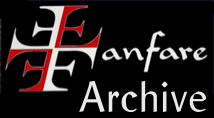Fanfare Contributor Bio
Peter J. Rabinowitz
For a long time, I used to go to bed early, protected from loneliness by my small Admiral AM radio tuned to WQXR. I’m not sure why I chose that station, since during my childhood days in Brooklyn and later in New Rochelle, I didn’t have much interest in serious music. I didn’t really care for my early piano lessons—and playing clarinet in the school band was a source of increasing humiliation, as I slipped further and further down in the third section. Musical passions suddenly overtook me in the late 1950s and early 1960s, though, for a variety of reasons. I started studying piano with Alex Petrushka, a magnificent teacher who opened me up to the spirit behind the notes; I learned that I could aggravate my parents by playing Wagner; I discovered Mahler through broadcasts on WBAI; and I heard five of Richter’s Carnegie Hall concerts. At the same time, though, my high school English teacher Edward Ducharme opened me up to the power of literature—and so began the split in my life that has continued ever since.
Thus, at the University of Chicago, which I entered just as former Fanfare colleague Susan Kagan was leaving, I eventually got a Ph.D. in Comparative Literature, guided by Wayne Booth—but, at the same time, I began writing music criticism for the Chicago Maroon, and briefly took up the cello (also, not coincidentally, Booth’s instrument of choice). In 1974, I found myself teaching Comp Lit at Kirkland College (later absorbed by Hamilton College), where I worked until 2020. In my early years in Central New York, I was fortunate enough to stumble on two interconnected Syracuse institutions: radio station WONO (run by Fanfare colleague Henry Fogel before he went on to bigger things) and its short-lived program guide/local magazine called Syracuse Guide. Both of these allowed me, for a while, an opportunity to write music criticism while I was making my way in an alternate universe as a narrative theorist. The appearance of Fanfare gave me a new venue—the longest-standing critic on the staff, I’ve been contributing since the third issue.
While juggling the deadlines of Fanfare, the teaching demands of a small liberal arts college, the editorial responsibility of Ohio State’s series Theory and Interpretation of Narrative (which I co-edited for nearly 30 years with James Phelan), the raising of two children, various political commitments, and a scholarly research agenda in narrative theory (which has on occasion combined my literary interests with my love for music), I managed to find time for some work in electronic composition (fortunately lost), an introductory course in conducting, a fair amount of choral singing, and study of the euphonium. In several capacities, I’ve also been involved, since its founding, with Symphoria, the co-op orchestra created by members of the Syracuse Symphony after its bankruptcy.





















